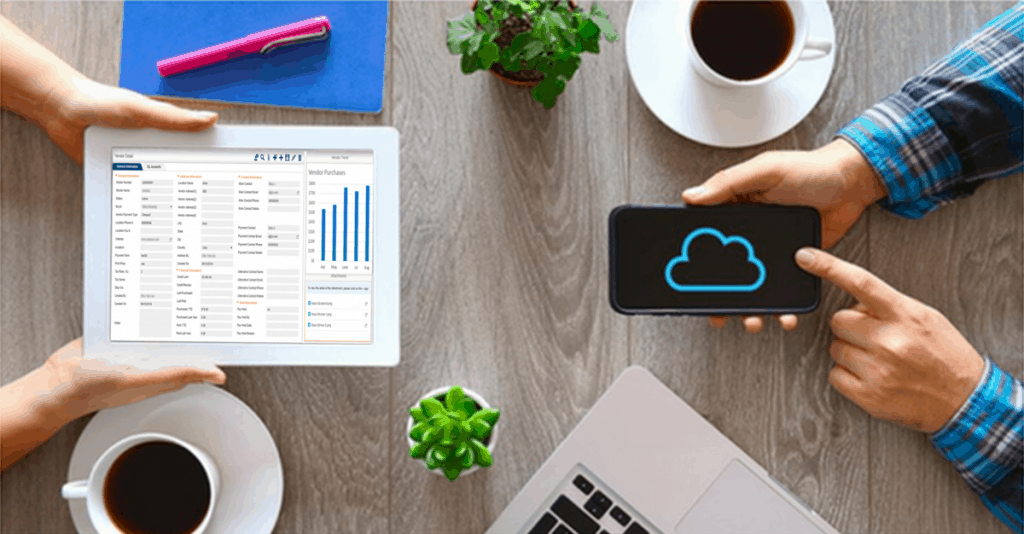ERP Systems and Cloud Security

A significant concern held by CIOs and top managers at companies of all sizes is the risk of a cybersecurity issue at their company. Their concern is justified and many are actively working to improve their software, systems, and procedures so that they will not have any problems.
A common misconception of ERP systems is that on-premise systems will have better security than a cloud-based system since it can be closely monitored. The fact is, the exact opposite is true! A cloud-based system will actually be MORE secure than one that you might operate on your own premises.
Reasons why Cloud security is better than on-premise
First, Software-as-a-Service (SaaS) providers are particularly focused on excelling in this area. They know that a breach in their security will cause customers to lose confidence them and severely impact their business. Their staff is particularly trained to identify and eliminate any potential security threats, and have a broader experience warding off these attacks. On the other hand, a user company’s internal IT staff will have too much on its plate trying to manage all of these responsibilities, while not being experts in cybersecurity.
In additional to having staff and internal procedures focused on providing great cybersecurity, having the right software to utilize is just as important. At My Office Apps, we partner with the Progress Software company for the back-end database functionality of Kechie ERP software. Progress Software was founded in 1981 and is one of the largest providers of database management software used by over 150,000 enterprises worldwide.
Security features that are built into this ERP software:
- The Authentication of Users: Who is allowed to get in either via a User Interface (UI) or directly to API’s?
- Authorization: Once a user logs into your application, what data are they allowed to access?
- Auditing: What did the user change?
- Data-at-rest: Is the data secure when it’s stored in the application?
- Data-in-motion: Is the data secure when it’s flowing through various architectural components of your application?
- Network connectivity: How do you make sure that the various ways in which a user can access your application are safe, both inside and outside the application boundaries?
The Kechie software takes advantage of these features by creating a smooth interface to this functionality that can enhance its capabilities. For example, different permissions can be programmed in the system for each user for either NO ACCESS, VIEW, UPDATE, or ADMIN privileges. These allow you to keep employees on a need to know and prevent unauthorized viewing, deleting, or changing of data by someone who shouldn’t be doing so. Another feature in Kechie is the CHANGE LOG function. This means that if a hacker ever was able to get into the system and change something, it could be detected. The hacker would not be able to cover their tracks. This feature is also useful in recovering from inadvertent errors in your staff. If something is mistakenly changed, an administrator could go in, figure out what happened and take corrective action. In addition, the cloud-based system also will have automatic data replication functionality. So if a data base becomes invalid due to a hacker or some other reason, the replicated information would be available for restoration of the data and maintaining functionality for the end user.
If you’re worried about communicating your data over the internet, precautions must be taken to ensure that a bad actor can’t tap into the connection, read the data, and cause mischief with this information. The internet standard for this is called Transport Layer Security (TLS) and the Kechie software fully complies with this. All data transmitted between the end user and the server is encrypted, meaning if someone were able to intercept the data, they would not be able to decode it or do anything with it. Simply put, the data sitting at rest on the server is encrypted, and if someone were to physically break into the server room and steal the storage hardware, they also would not be able to decode the data or do anything with it.
Your company’s data has been at the forefront of Kechie’s creation from the start, to make sure that it is kept secure by both My Office Apps, and its partners. With the Kechie ERP system, you won’t have to worry about cybersecurity. You can instead focus your efforts on running and building your business with peace of mind.

